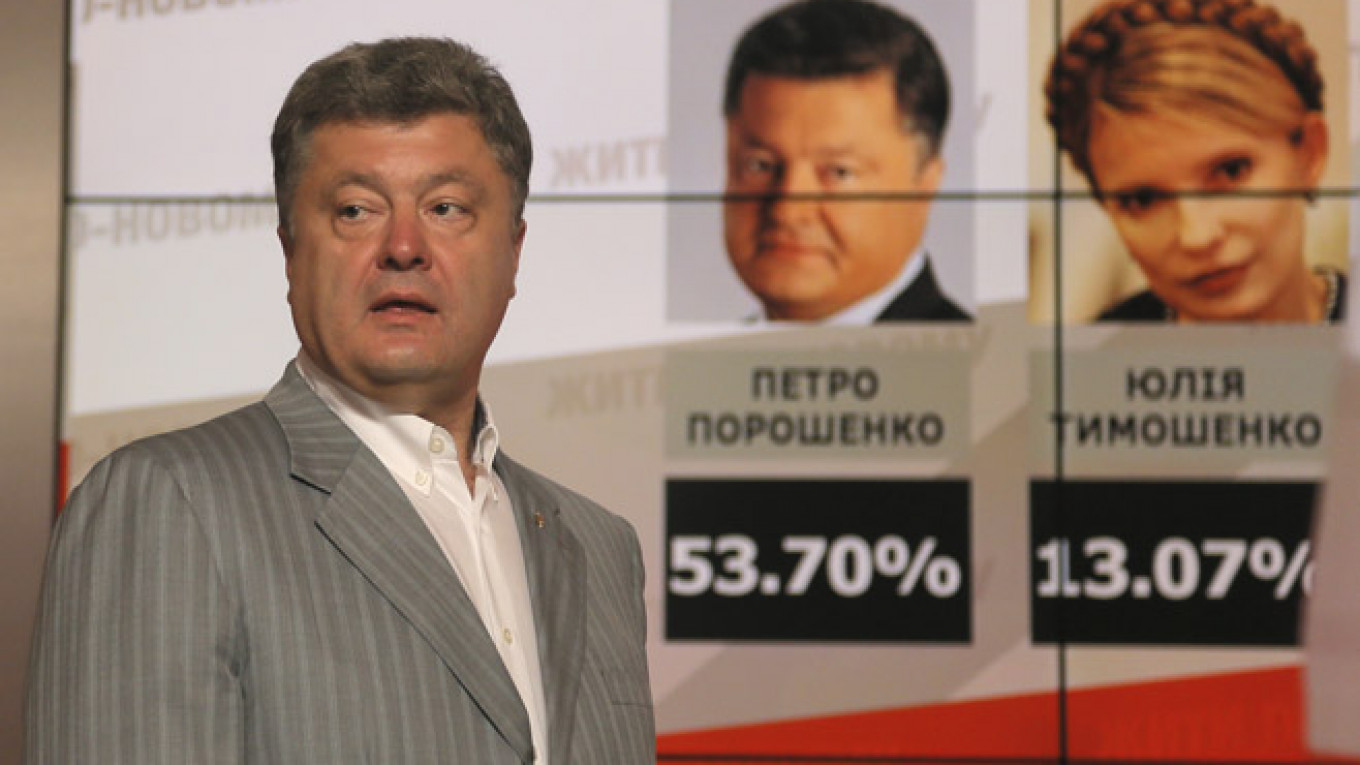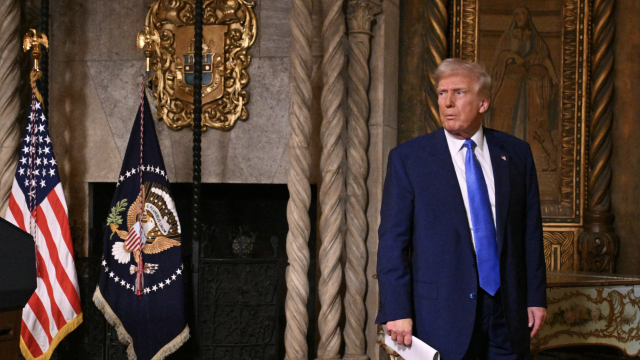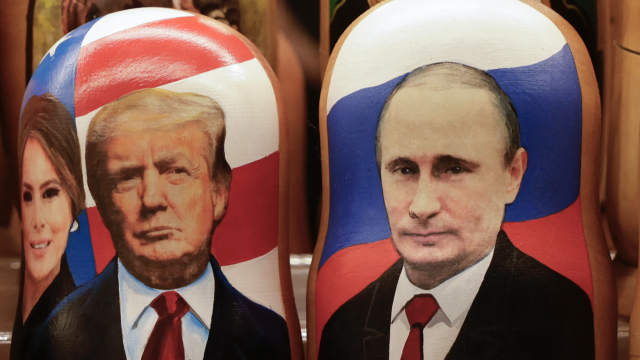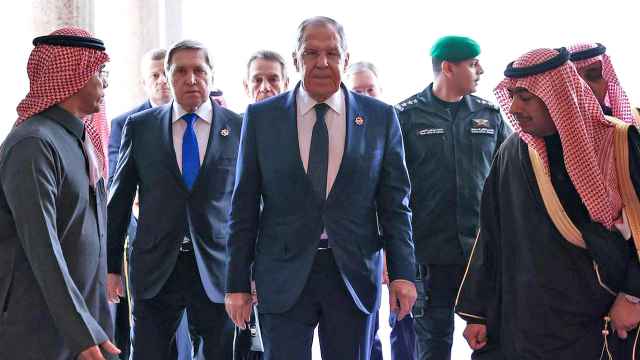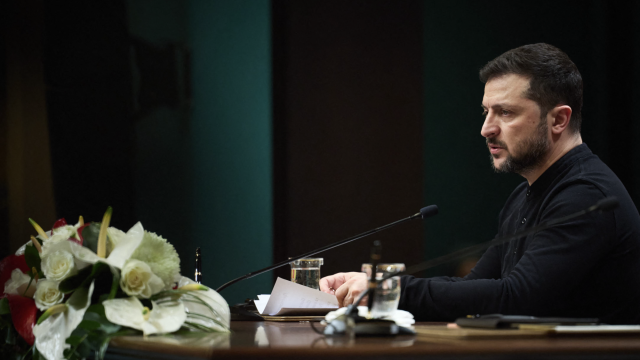When demonstrators occupied central Kiev at the end of last year, they called for a radically changed Ukraine with reformed political institutions and the replacement of the old political guard with new faces that would lead the country to a prosperous future in Europe.
But as Petro Poroshenko, 48, was elected president Sunday with more than 54 percent of the vote, many of the protesters were left disappointed, according to news reports from Kiev.
The president-elect has already sworn to return Crimea from Russia by suing it in international courts and to continue the anti-terrorist operation in Eastern Ukraine.
Poroshenko, a chocolate, automotive and media magnate, is not only a billionaire, but also a long-time politician who has served over the last decade as both foreign and economic minister, as well as secretary of the national security and defense council of Ukraine.
His wealth is estimated by Forbes at $1.3 billion, making him the seventh richest man in the country. Poroshenko said Monday he would sell most of his businesses, apart from Channel Five.
During his time in government, the newly elected president reported to figures as diverse as former President Viktor Yushchenko, former Prime Minister Yulia Tymoshenko and recently ousted President Viktor Yanukovych.
But when crowds flooded central Kiev to protest in support of a pro-Europe future for Ukraine, it did not take long for Poroshenko to choose sides. He supported the activists with "food, water and firewood," according to Novaya Gazeta newspaper, while his Channel Five was highly critical of Yanukovych's regime.
As a result of his pro-Maidan stance, Poroshenko's standing in Russia — where he has extensive connections among the government and business elites — is unstable. His chocolate factory in the western Russian city of Lipetsk was shut down by authorities there in March before it was allowed to resume work in April.
Among the first few statements in his new capacity as president-elect, Poroshenko said Monday that he plans to meet with the Russian leadership next month. He said he and Putin, with whom he shares a love of judo, already know each other.
"I know Putin; I have had experience in discussions with him; he is a strong and tough negotiator," Poroshenko told Agence France-Presse last week.
"We will get ready for this meeting and will not just shake hands," he said in comments carried by Ukraine's UNN agency Monday.
Despite Poroshenko's unequivocally pro-Europe and even pro-NATO stance, many observers have noted his overall moderate rhetoric toward Russia and its leadership, especially when compared with comments made by other contenders for the top post.
"Poroshenko is a moderate politician who is prepared to compromise with Russia if authorities in the Kremlin are willing to cooperate and reset relations with Ukraine," said Mykola Mikhalchenko, president of the Ukrainian Academy of Political Sciences.
At the same time, Poroshenko will not give up on certain issues, most of all Russia's annexation of Crimea back in March.
"I want to stress that Ukraine will not veer from its tough stance on Crimea. We consider it occupied. We have never recognized and will never recognize the referendum results and together with the whole world see it as Ukrainian territory," he said during a news conference Monday.
No Ukrainian politician will accept the annexation, Mikhalchenko said, which will limit the development of political ties between the two neighbors.
"There will be progress in economic cooperation, but in politics, Crimea will be a barrier for a long time," he said by phone from Kiev.
Poroshenko's Russian counterpart has said Ukraine will have to clear its gas debt before relations can improve. Speaking at the St. Petersburg Economic Forum on Friday, Putin said he expects Ukraine to pay off its $3.5 billion gas bill before there can be "favorable conditions" for negotiations with its new leader.
Repeated calls to Poroshenko's press office went unanswered Monday.
Contact the author at i.nechepurenko@imedia.ru
A Message from The Moscow Times:
Dear readers,
We are facing unprecedented challenges. Russia's Prosecutor General's Office has designated The Moscow Times as an "undesirable" organization, criminalizing our work and putting our staff at risk of prosecution. This follows our earlier unjust labeling as a "foreign agent."
These actions are direct attempts to silence independent journalism in Russia. The authorities claim our work "discredits the decisions of the Russian leadership." We see things differently: we strive to provide accurate, unbiased reporting on Russia.
We, the journalists of The Moscow Times, refuse to be silenced. But to continue our work, we need your help.
Your support, no matter how small, makes a world of difference. If you can, please support us monthly starting from just $2. It's quick to set up, and every contribution makes a significant impact.
By supporting The Moscow Times, you're defending open, independent journalism in the face of repression. Thank you for standing with us.
Remind me later.


